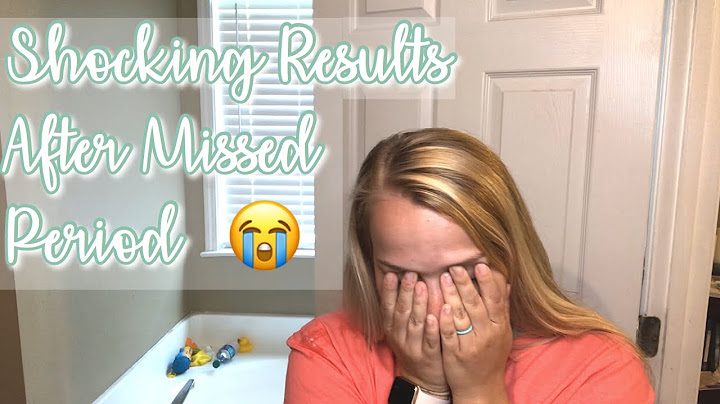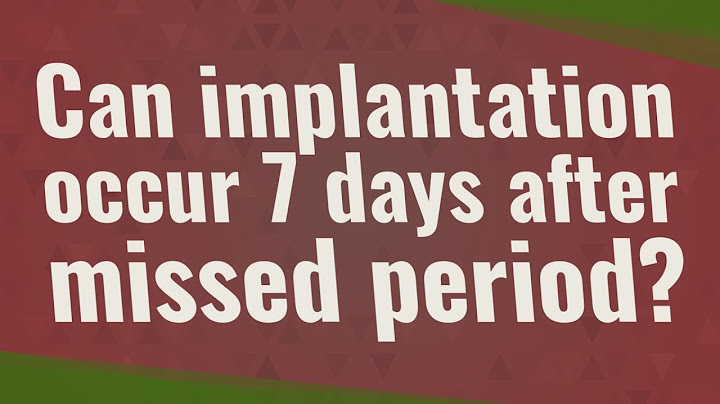 Show You can still bleed, even if you're pregnant. One of the perks of pregnancy – you know, other than no one judging your weird Pringles-dipped-in-hot-sauce cravings – is that your period is basically MIA for months, right? Technically, yes. You definitely don’t menstruate (a.k.a. shed blood and tissue from your uterus) each month, but that doesn’t mean your bathroom trips will always be blood-free (which can be scary). So, what if you see something that looks like your period while you’re pregnant? First: Slow your roll. Bleeding a bit during pregnancy is pretty common, but it can be dangerous. Here’s what you need to know about bleeding while pregnant. Wait, a little bleeding while you’re pregnant is normal? It definitely can be, says Dr Joanne Stone, director of maternal foetal medicine at Mount Sinai Health System in New York City. “Spotting occurs in about 30% of pregnancies in the first trimester,” she says. While you should always check in with your doctor if you notice blood, just to be safe, spotting isn’t usually a reason for concern, she says. The spotting can happen anytime, but typically after sex, or about three to four weeks into the pregnancy. “Some people have bleeding around the time they would have expected their period, a few weeks in,” Stone says. “This is usually due to implantation and is just a coincidence.” “Spotting occurs in about 30% of pregnancies in the first trimester.” But keep in mind, there’s a big difference between spotting (very light bleeding, kind of like when your period is just starting or ending) and a full-on period. That’s because you need the blood your body normally sheds during your period to nourish the embryo or foetus. Read more: 12 reasons why you’ve got period symptoms but no period When should I be worried about bleeding while pregnant? If you know you’re pregnant and you’re bleeding enough to fill a pad, you need to get in touch with your doctor asap, says Nicole Bullock, an obstetric-gynaecologist in Texas. “In the first trimester, up to about 20 weeks, we worry about miscarriage with heavy bleeding,” she says. But miscarriage isn’t the only explanation: Persistent bleeding can also mean that the placenta has grown low in the cervix. While you can have a completely normal and safe pregnancy with a low-lying placenta (called placenta previa), your doctor will likely ask you to abstain from sex and may recommend bed rest in your third trimester, says Bullock. Heavy, period-like bleeding later in your pregnancy can be a sign of something more serious like preterm labour or placental abruption (when your placenta tears away from your uterus). But even then, you’ll be dealing with much more than just bleeding; you’ll also notice extreme pain, says Bullock. In that case, you’ll need to go the hospital where doctors will deliver the baby, she says. Still, placental abruption is extremely rare (especially if you avoid drugs and alcohol, and go to all your prenatal checkups), says Bullock. Of course, it’s best to play it safe. So if you’ve noticed blood and you’re worried about it – and especially if you experience any pain along with it – give your obstetric-gynaecologist a call. Otherwise, enjoy your short vacation from tampons. This article was originally published on www.womenshealthmag.com Image credit: iStock Pregnancy brings lots of changes to your body, so it’s normal to wonder what might remain the same. One commonly asked question: “Can you get your period while pregnant?” Here, we tapped experts to find out. Keep reading to learn more about whether you can have a period while pregnant, and what to do if you experience period-like bleeding or cramps during pregnancy. Experts agree that you cannot get your period while pregnant. Let’s revisit why women get periods in the first place: Over the course of a menstrual cycle, the lining of a woman’s uterus slowly thickens in preparation for a fertilized embryo to implant in the uterine wall, explains Christine Greves, MD, an ob-gyn at the Winnie Palmer Hospital for Women and Babies, located in Orlando, Florida. However, if a woman doesn’t get pregnant at the end of her menstrual cycle, that uterine lining is then shed, resulting in a period, Cynthia Flynn, MD, a Florida-based ob-gyn with JustAnswer, adds. Here’s the thing: Though you can’t get your period while pregnant, some women might experience some spotting and bleeding, and even cramping, that may mimic your period. (More on this below.) What to Know About Period-Like Bleeding During PregnancyIt’s understandable to be concerned if you experience period-like bleeding during early pregnancy, as it can potentially be a sign of miscarriage or an ectopic pregnancy. But bleeding during pregnancy doesn’t always mean that something is terribly amiss. In fact, approximately a third of women will experience some spotting and bleeding during their first trimester, says Mary Jane Minkin, MD, a clinical professor of obstetrics at Yale School of Medicine. While half of these cases may sadly end in miscarrage, the other half will proceed as usual. Some possible reasons someone might experience bleeding during pregnancy include:
The best thing to do if you’re experiencing period-like bleeding during pregnancy is to call your ob-gyn or midwife, so they can make sure everything is okay with you and baby. While some circumstances may call for further treatment, “in many cases, an ultrasound will show that everything is okay and may even determine the cause of the bleeding,” Flynn notes. What to Know About Period-Like Cramps While PregnantYou can’t get your period during pregnancy, but you may still unfortunately experience some period-like symptoms, such as cramps during pregnancy. They could be due to implantation pain in early pregnancy or the growth of the uterus in the first trimester. “It often feels like you are about to get your period, but it never comes,” Flynn explains. “In the second trimester, you may get a few Braxton Hicks contractions or round ligament pain. Both are felt as cramping.” While some period-like cramping is par for the course, severe cramping at any point during the pregnancy could be a sign of a more serious issue, such as an ectopic pregnancy, miscarriage or preterm labor. If you do experience any cramps during pregnancy, reach out to your ob-gyn or midwife, especially if the cramping is persistent. More moderate cramps are likely no cause for concern, but as Flynn says, “These are the symptoms your doctor wants to hear about.” About the experts: Christine Greves, MD, FACOG, is a board-certified ob-gyn at the Winnie Palmer Hospital for Women & Babies, located in Orlando, Florida. She received her medical degree from the University of South Florida College of Medicine. Cynthia Flynn, MD, is a board-certified ob-gyn based in Florida with over 20 years of experience. She is also an expert with the online platform JustAnswer. She received her degree from the Michigan State University College of Human Medicine. Mary Jane Minkin, MD, is a practicing gynecologist and a clinical professor of obstetrics, gynecology and reproductive sciences at Yale University School of Medicine in New Haven, Connecticut. She also received her medical degree and completed her residency there. Please note: The Bump and the materials and information it contains are not intended to, and do not constitute, medical or other health advice or diagnosis and should not be used as such. You should always consult with a qualified physician or health professional about your specific circumstances. Plus, more from The Bump: Can you get a full period and still be pregnant?The short answer is no. Despite all of the claims out there, it isn't possible to have a period while you're pregnant. Rather, you might experience “spotting” during early pregnancy, which is usually light pink or dark brown in color.
Can you bleed like a period in early pregnancy?Spotting or bleeding may occur shortly after conception, this is known as an implantation bleed. It is caused by the fertilised egg embedding itself in the lining of the womb. This bleeding is often mistaken for a period, and it may occur around the time your period is due.
|

Related Posts
Advertising
LATEST NEWS
Advertising
Populer
Advertising
About

Copyright © 2024 muatrau Inc.


















